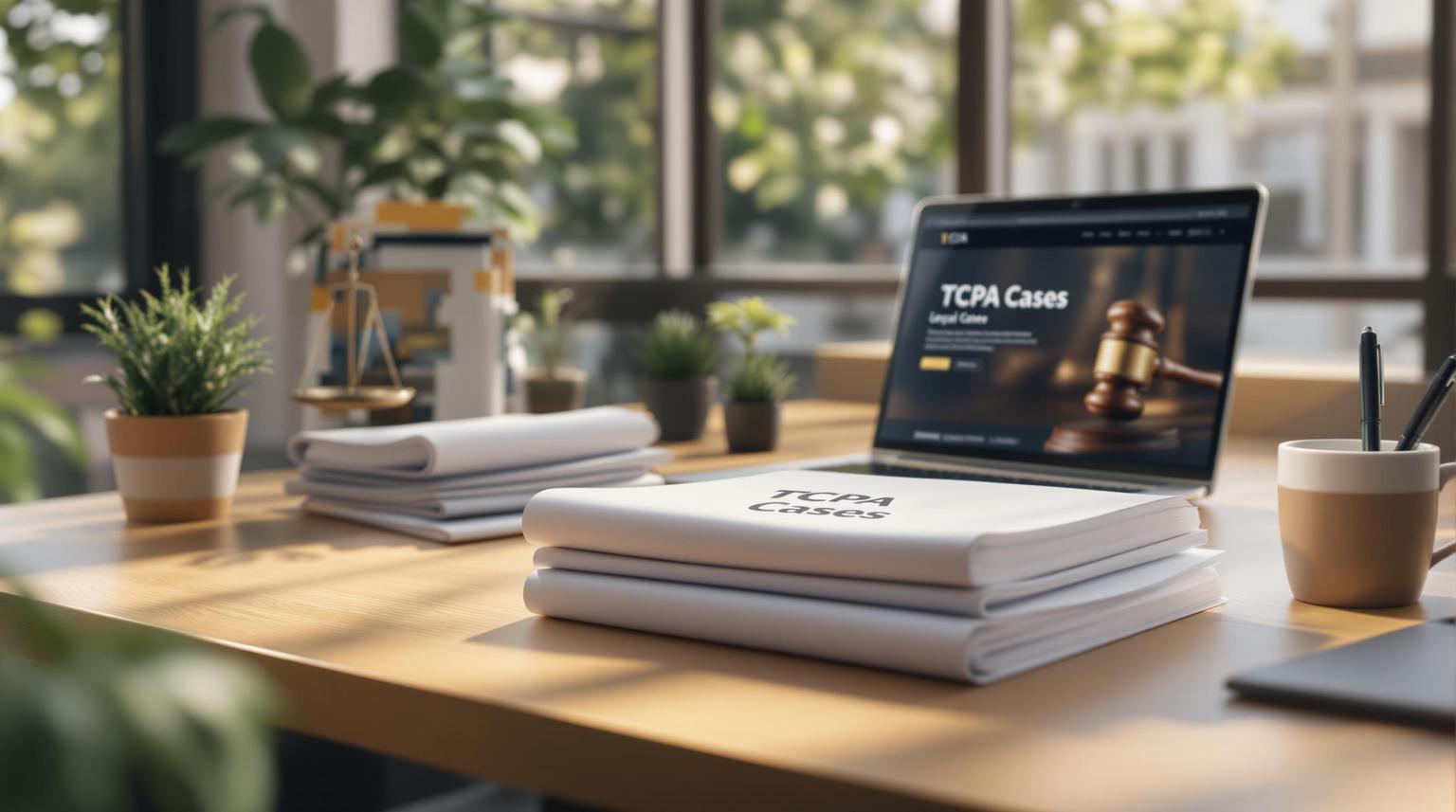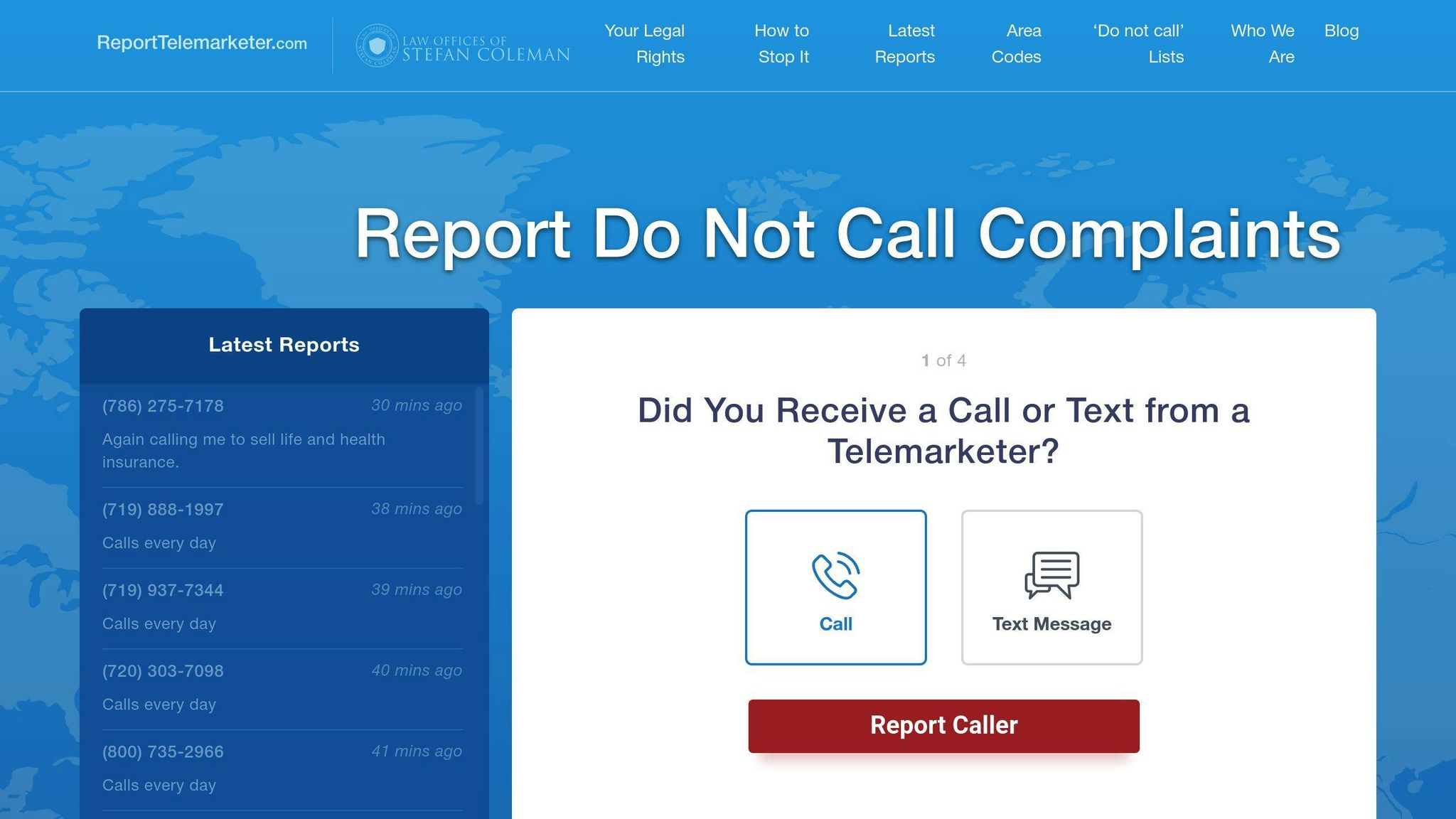
The Telephone Consumer Protection Act (TCPA) doesn’t automatically allow for attorney fee recovery. However, state laws, local court rules, and specific case factors can sometimes help plaintiffs recover these fees. Here’s a quick breakdown:
- TCPA Limitations: Attorney fees are not covered under TCPA as confirmed in cases like Pascal v. Concentra, Inc..
- State Law Options: Laws like Florida’s FTSA explicitly allow attorney fee recovery.
- Court Decisions: Local rules, such as in Wang v. Defense Tax Group Inc., can influence fee outcomes.
- Key Strategy: Pair TCPA claims with state laws or document violations using tools like ReportTelemarketer.com.
To improve your chances, keep detailed records of legal work, choose skilled attorneys, and explore state-specific claims that allow fee recovery.
Who Can Recover Attorney Fees in TCPA Cases
TCPA Does Not Automatically Cover Attorney Fees
The Telephone Consumer Protection Act (TCPA) does not provide for automatic recovery of attorney fees. As seen in Pascal v. Concentra, Inc., courts have consistently ruled that attorney fees are not available under the TCPA. However, plaintiffs can look into other legal strategies to seek fee recovery.
When Attorney Fees Might Be Awarded
Although the TCPA itself doesn’t allow for automatic fee recovery, plaintiffs can rely on other methods:
| Recovery Method | Description | Example |
|---|---|---|
| State Law Claims | Some state laws permit fee recovery | Florida Telephone Solicitation Act (FTSA) |
| Local Court Rules | Certain jurisdictions have rules for fee awards | Wang v. Defense Tax Group Inc. |
| Special Circumstances | Courts may consider unique case factors | In N.L., the Ninth Circuit awarded over 90% fees despite minimal state law claims |
Court Decisions on Attorney Fees
Courts closely scrutinize requests for attorney fees, ensuring they are both reasonable and justified. For example, in Wang v. Defense Tax Group Inc., the court reduced the fees based on local jurisdiction rules. When determining fee awards, courts typically evaluate:
- How much of the work directly relates to claims eligible for fees
- Whether the amounts requested are reasonable
- The connection between TCPA claims and state law claims
- Rules and precedents specific to the local jurisdiction
Knowledge of the TCPA keeps the Plaintiffs’ Lawyer Away
sbb-itb-a8d93e1
Examples of Attorney Fee Awards in TCPA Cases
Attorney fee awards in TCPA cases offer insight into how plaintiffs can navigate legal hurdles to optimize their recovery.
Combining TCPA and State Law Claims
In the Ninth Circuit, courts have awarded more than 90% of attorney fees, even when state law claims accounted for just 1% of the verdict. This reflects a broad interpretation of fee awards in cases involving combined claims.
State statutes, such as Florida’s FTSA and California’s fee-permissive rules, can significantly impact the potential for recovering fees . However, local court rules often play a decisive role in determining the final award, as demonstrated in the Wang case.
Case Example: Wang v. Defense Tax Group Inc.
In Wang v. Defense Tax Group Inc., the plaintiff sought $20,000 in fees. The court, citing insufficient evidence, reduced the award and instead relied on local fee schedules. This case emphasizes the importance of providing thorough documentation, making reasonable fee requests, and understanding local court rules.
The Wang case illustrates that adhering to local guidelines and presenting strong supporting documentation can lead to successful fee recovery.
These cases underscore the value of combining claims, knowing local rules, and carefully documenting legal efforts.
Tips for Plaintiffs Seeking Attorney Fees in TCPA Cases
Filing Claims to Maximize Results
Pairing TCPA claims with state laws that allow for fee recovery can be a smart move. Many TCPA attorneys work on contingency, meaning they only get paid if you win, which aligns their goals with yours. Choosing attorneys skilled in both TCPA and state law claims can help you uncover the best strategies for your case.
Keeping Records of Legal Work
Courts need solid evidence to approve fee recovery requests, so keeping detailed records is a must. Proper documentation helps justify your attorney fees and strengthens your case.
| Documentation Type | Details to Include |
|---|---|
| Legal Documentation | Dates, descriptions of work, correspondence, and filings |
| Cost Documentation | Receipts for case expenses |
| Settlement Offers | Records of settlement discussions |
Comprehensive records not only back up your fee requests but also make your case more compelling when you work with legal professionals.
Using ReportTelemarketer.com to Fight Telemarketers

If the legal process feels overwhelming, platforms like ReportTelemarketer.com can make it easier. They help you document violations and file complaints without requiring upfront costs.
With tools designed to track violations and build strong cases, ReportTelemarketer.com supports your efforts to recover fees. Their structured approach is particularly helpful in cases involving multiple claims that allow for fee recovery.
Conclusion: Key Points About Attorney Fees in TCPA Cases
While the TCPA itself doesn’t permit recovering attorney fees, state laws and carefully chosen legal strategies can open the door to compensation for legal representation. Many state laws provide opportunities for fee recovery, offering a workaround to the TCPA’s restrictions.
Court rulings highlight how these strategies play out in real cases. For instance, the Wang v. Defense Tax Group Inc. case sheds light on how courts assess fee requests, stressing the need for detailed documentation and reasonable expectations.
Tools like ReportTelemarketer.com can also play a crucial role. By helping plaintiffs document violations and file complaints, these resources enhance legal strategies and improve the chances of recovering attorney fees when applicable.
Securing attorney fees involves careful planning and precise documentation. Partnering with legal experts familiar with both TCPA and state-specific claims can greatly increase the likelihood of obtaining fair compensation for your legal efforts.